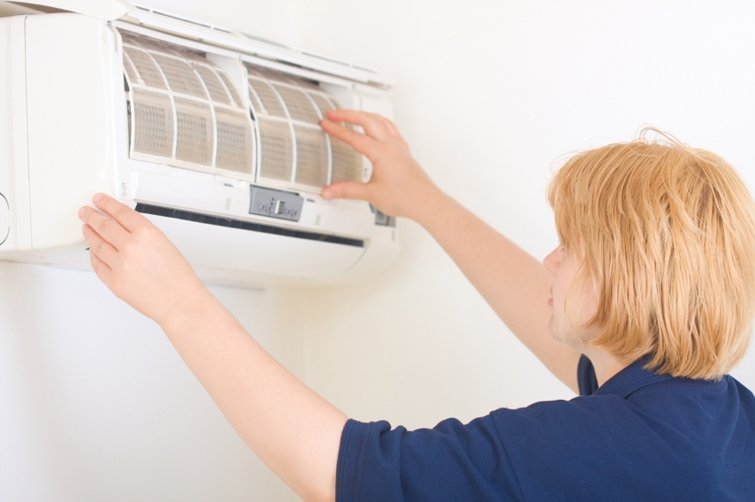What are you ready for the summer? We certainly are. Your cooling unit is crucial for keeping your home agreeable in the blistering late spring months, yet for that to occur, you need a perfect cooling channel. People can get it AC Filter Cleaning Dubai.
AC filters work by trapping dirt, pollen, pet dander, and dust so the air in your room stays clean and safe to breathe. Over time, these particles start to build upon the filter, causing it to not work as well and potentially allowing harmful particles and allergens to enter the air.
The accumulation of particles can also greatly affect the performance of your air conditioning unit; A particularly dirty AC filter will not filter out pollutants and cause damage to your air conditioner. Therefore, routine cleaning is extremely important to ensure the efficiency and long life of your air conditioning unit. We’ll discuss how regularly you need to clean your forced air system channel and how to do it, just as how to know whether your climate control system channel should be supplanted and how to supplant your forced air system channel.
Cleaning Your AC Filter: The Basics
Your air conditioning filters need to be cleaned or replaced at least once a month or more, depending on how often you use your unit. But how do you know if your air conditioning filter needs to be washed or replaced?
There are two distinct sorts of AC channels: launderable and expendable. Launderable AC channels can be effortlessly cleaned and reused on a case-by-case basis, while expendable AC channels offer a more limited life cycle. The advantage of disposable AC filters is their low cost; however, they are less effective in keeping the air clean. We offer Services in Dubai.
While washable AC filters are more effective at cleaning the air, they require more maintenance than disposable AC filters. Check your owner’s manual to see if your air conditioner uses washable or disposable filters; That way, you will have a better idea of what to do when your filter gets dirty.
How to clean your air conditioner filter
You can clean your air conditioning filters by rinsing them in the sink and letting them dry on a towel, or by using a vacuum cleaner to remove dirt and dust build-up. The entire cleaning process takes little time, and your filters easily snap back into place as soon as you’re done.
AC filter change: when and how
Whether you have a disposable air conditioning filter or a washable air conditioning filter, at some point all your air conditioning filters need to be replaced. In any case, supplanting your AC channel doesn’t need to be a troublesome errand. We’ll walk you through how to advise if your AC channel should be supplanted and how to supplant it.
As we mentioned, the life of your AC filter depends on several factors. Including the quality of the filter, how often you use your air conditioning unit, and whether your home is especially susceptible to contaminants like pet dander or dust. Manufacturers also often list the suggested time period for replacement on the air filter packaging. But how can you be sure if your AC filter needs to be replaced?
Bottom line: if it’s really dirty, replace it. If you have a washable AC filter and the wash no longer works, it’s time for a new AC filter. If you have a disposable AC filter and it looks exceptionally dirty, it needs a replacement.
Also, if you notice rips, rips, or holes in your AC filter, you should replace it with a new one. Worn AC filters do not improve air quality and can affect the overall performance of your AC system.
AC Filters and its Air Quality
As we have commented. A clean, high-quality air conditioning filter will do wonders to improve the air quality in your home and ensure that your air conditioning unit stays in good working order for years to come. When paired with a quality air purifier, a clean AC filter will help you on the road to a happier. An additional bonus?
Regularly cleaning and replacing your AC filter can help you save money and energy; in fact, the Dubai Department of Energy estimates that regular maintenance can reduce your energy consumption by 5 to 15 percent.


